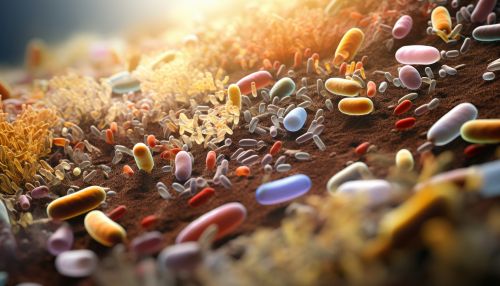The Role of Microbiota in Human Digestive Health
Introduction
The human body is a complex ecosystem, home to trillions of microorganisms collectively known as the microbiota. This diverse community of bacteria, viruses, and fungi plays a crucial role in maintaining human health, particularly in the digestive system. The human digestive system is a complex network of organs, glands, and tissues that process food into nutrients and energy for the body. The microbiota in the digestive system, also known as the gut microbiota, has a significant influence on this process.


Composition of the Gut Microbiota
The gut microbiota is composed of over 1000 different species of bacteria, with each individual hosting around 160 different species. The two dominant bacterial phyla in the gut are the Bacteroidetes and the Firmicutes, but other phyla such as the Proteobacteria, Actinobacteria, and Verrucomicrobia are also present. The composition of the gut microbiota varies between individuals and is influenced by factors such as diet, age, genetics, and environment.
Role of the Gut Microbiota in Digestion
The gut microbiota plays a critical role in the digestion and absorption of nutrients. It assists in the breakdown of complex carbohydrates, proteins, and fats that the human body cannot digest on its own. The microbiota also produces essential vitamins and other bioactive compounds that contribute to human health.
Impact of the Gut Microbiota on Immune Function
The gut microbiota plays a vital role in the development and function of the immune system. It helps to maintain the integrity of the gut barrier, which protects against the invasion of harmful pathogens. The microbiota also modulates immune responses, influencing the balance between pro-inflammatory and anti-inflammatory responses.
Gut Microbiota and Disease
Imbalances in the gut microbiota, known as dysbiosis, have been linked to a variety of diseases, including inflammatory bowel disease, obesity, diabetes, and even mental health disorders. Research is ongoing to understand the mechanisms behind these associations and to develop strategies for manipulating the gut microbiota to improve health.
Conclusion
The gut microbiota plays a crucial role in human digestive health, influencing digestion, immune function, and disease risk. Understanding the complex interactions between the gut microbiota and the human body is an active area of research with potential implications for disease prevention and treatment.
